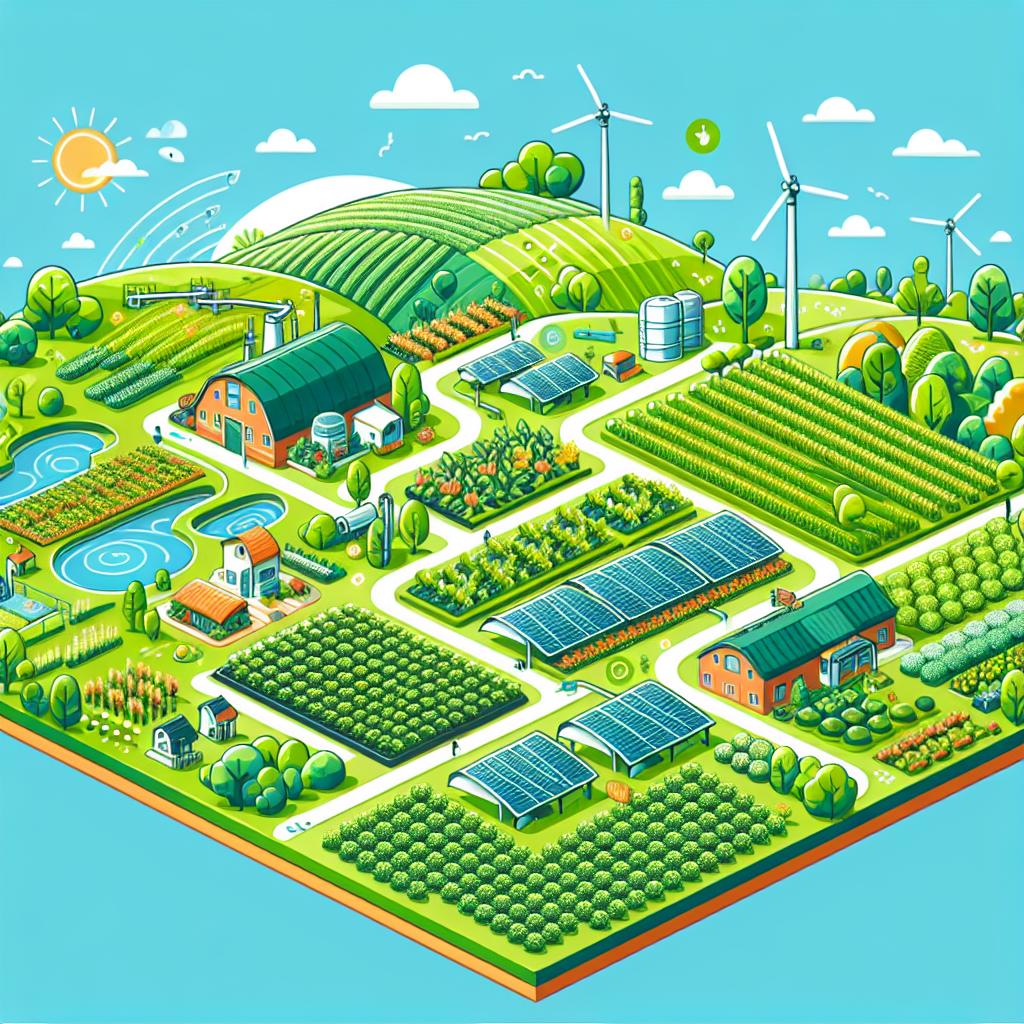Harvesting a Greener Future

In the heartland of America, where vast fields of corn and soybeans stretch as far as the eye can see, a quiet revolution is taking place. Farmers and rural communities are embracing sustainable agriculture practices, which prioritize eco-friendly methods, water conservation, energy efficiency, climate education, and biodiversity, paving the way for a greener and more just food system.
At the core of this movement is sustainable agriculture. This approach to farming emphasizes practices that promote ecological balance and reduce the negative impact on the environment. Sustainable farmers use natural methods to manage pests and weeds, employ regenerative agriculture techniques like cover cropping and crop rotation, and practice conservation tillage. These practices not only improve the health of the soil but also help to mitigate climate change by sequestering carbon.
A crucial component of sustainable agriculture is water conservation. In a world where water scarcity is becoming increasingly common, farmers are adopting drip irrigation, using rainwater harvesting systems, and implementing practices like mulching and terracing to minimize water loss. By conserving water, farmers not only ensure the sustainability of their operations but also contribute to the overall water security of their communities.
Another essential aspect of this greener farming revolution is energy efficiency. Solar panels on barns, wind turbines in fields, and biogas systems that convert manure into fuel are becoming more common. By producing their own renewable energy, farmers not only reduce their carbon footprint but also gain financial independence from utility companies.
But sustainable agriculture is about more than just the land; it's also about the people who work it. Climate education is a vital part of this movement. Farmers and rural communities are at the forefront of the impacts of climate change, and equipping them with the knowledge and skills to adapt is crucial. Climate education programs teach farmers about the latest research on climate-smart agriculture practices, help them develop resilience strategies, and provide them with the resources they need to build a more sustainable and prosperous future.
Another essential element of this revolution is biodiversity. Monoculture farming, which relies on a single crop, can lead to the loss of habitat for various species, endanger food security, and contribute to climate change. Sustainable agriculture, on the other hand, emphasizes diversity in crops, rotations, and ecosystems. By fostering a rich mosaic of flora and fauna, sustainable farmers create healthier, more resilient agricultural landscapes.
Lastly, climate justice is a critical issue that cannot be overlooked. A greener food system must be accessible and equitable for all. Sustainable agriculture offers a viable solution. It not only helps to mitigate the negative impacts of climate change but also provides farmers with the tools they need to build more prosperous and resilient livelihoods. By ensuring that everyone has access to healthy, locally grown food, we can create a more just food system that benefits everyone.
In conclusion, the sustainable agriculture movement is about more than just growing food; it's about growing a greener, more just, and more equitable future for all. By embracing eco-friendly practices like water conservation, energy efficiency, and climate education, farmers are not only helping to mitigate the impacts of climate change but also securing the long-term sustainability and prosperity of their communities. With a focus on biodiversity and climate justice, we can build a food system that nourishes not only our bodies but also our planet and our future generations.




